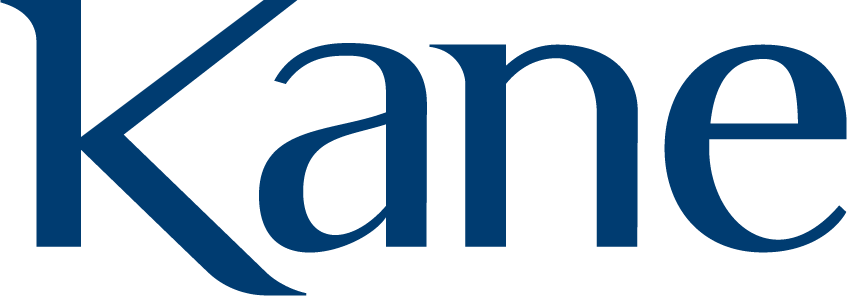The Brass Tacks of Re-Opening the Economy
As business leaders, both our lives and businesses were turned upside down during the COVID-19 pandemic. For many businesses, our sales and marketing activities screeched to a halt and growth strategies were replaced with survival strategies. As we make plans to get back to work, what information should we use to guide our decisions and strategy for the year ahead? What challenges should we be thinking about now? And what lessons can we learn from other economies that have opened before ours?
How do we reprioritize and get our companies back on track?
In this webinar, moderated by Kane’s President and CEO, Kimberly Kane, a business and EOS® consultant, a business association leader, and a global political economist, helped cut through the clutter and provided practical advice to help leaders refocus and restart. Panelists included:
Rick Appleby, Certified Business Coach and Experienced EOS Implementer™ with Strategic Planning Solutions of Milwaukee, Wis.
Steve Baas, Senior Vice President of Governmental Affairs of the Metropolitan Milwaukee Association of Commerce
Manfred Elsig, Deputy Managing Director and Professor of International Relations at the World Trade Institute of the University of Bern, Switzerland.
During the webinar, Elsig spoke of the urge for countries not to rush into reopening too quickly. He also noted a trend in European countries in which trust has emerged as a unifying factor throughout the COVID-19 crisis. This has translated to many European countries showing a high level of support for their government and very few protests or demonstrations about the government’s actions. However, when it comes to helping businesses through these unprecedented times, our panelists agreed that the government’s role should be to help stabilize businesses as much as they can, but ultimately allow businesses to focus on the innovation side of the equation.
Following are a few other key takeaways from each of our experts in this webinar:
From Rick Appleby, Certified Business Coach and Experienced EOS Implementer™ with Strategic Planning Solutions of Milwaukee, Wis.:
“To a degree, the pandemic has forced innovation. People have discovered that remote working environments can be effective; and we may see this play a role in the future of work spaces moving forward. Others have realized that they need to spend more time on their strategic planning.”
“There is a very large level of uncertainty about what future demands will be. What I ask them [the clients I work with] to do at this time is focus on the things they were doing to be successful to begin with. It’s a change in the sales mindset or, ‘What can I sell you?’ to a focus on relationship development or, ‘What can I do to help you?’”
“Sales organizations should reassess their client base and market share, as well as realign their prospects around their goals. It’s important to double down on sales, rather than retract. This will ultimately help lead businesses over this hump.”
One key area Appleby focuses on is examining stability vs. profitability. He noted a few key things all businesses should be doing at the moment to maximize stability:
Manage and optimize cash flow and develop a disaster recovery plan.
Take advantage of all available information that is out there to start ensuring you are reenergizing your business.
Look at what worked and what didn’t work in your response efforts to take steps to modify business plans in the future.
From Steve Baas, Senior Vice President of Governmental Affairs of the Metropolitan Milwaukee Association of Commerce:
“The first thing anyone learning to swim asks when they approach the pool is ‘How deep is the water?’ I have to explain, ‘You swim on top of the water; it doesn’t matter how deep it is.’ For companies looking at innovation, you can’t be obsessed with how deep the water is, you have to learn how to swim. You have to innovate the pipeline; your workplace; your customer-facing side of operations so that you’re focusing on what it is you can do well, rather than focusing on the depth of the turmoil.”
“In the span of three months we have gone from virtually zero unemployment to record levels of unemployment. We’ve lost 30 percent of the GDP of this state in three months. Thirty-eight percent of the jobs that have been lost have been in the hospitality industry. So many of those jobs are jobs that don’t require a college degree; they are disproportionately occupied by people of color and low-income people trying to startup economically. Those lost jobs create a lack of opportunity within our society that have ripple effects economically long-term.”
“The urgency around our goals of educational equity, opportunity and quality educational opportunity for everyone in our community are more urgent than ever.” For instance, MMAC’s A Region of Choice initiative, which tries to increase the number of minorities in C-suite jobs and to challenge businesses to sign a pledge to create ladders of economic ability into higher economic strata” is more important than ever right now.
From Manfred Elsig, Deputy Managing Director and Professor of International Relations at the World Trade Institute of the University of Bern, Switzerland:
“The recovery will take a long time. The discussion is centered around how big the “U” curve will be or in the worst case the “L” curve will be. Hospitality and retail companies (i.e. restaurants, barbershops, etc.) are slowly restarting, which means people are going back to work. Looking at the numbers, these are the low-hanging fruits; the biggest challenges still lie ahead.”
“Recovery efforts in Europe haven’t been uniform; there have been different hotspots (Spain, Italy, France, etc.), as well as countries like Sweden that had partial lockdowns. On the other hand, countries like Germany and Switzerland are two to three weeks ahead and optimistic in their reopening efforts.”
You can watch the full webinar by clicking play on the video above!
